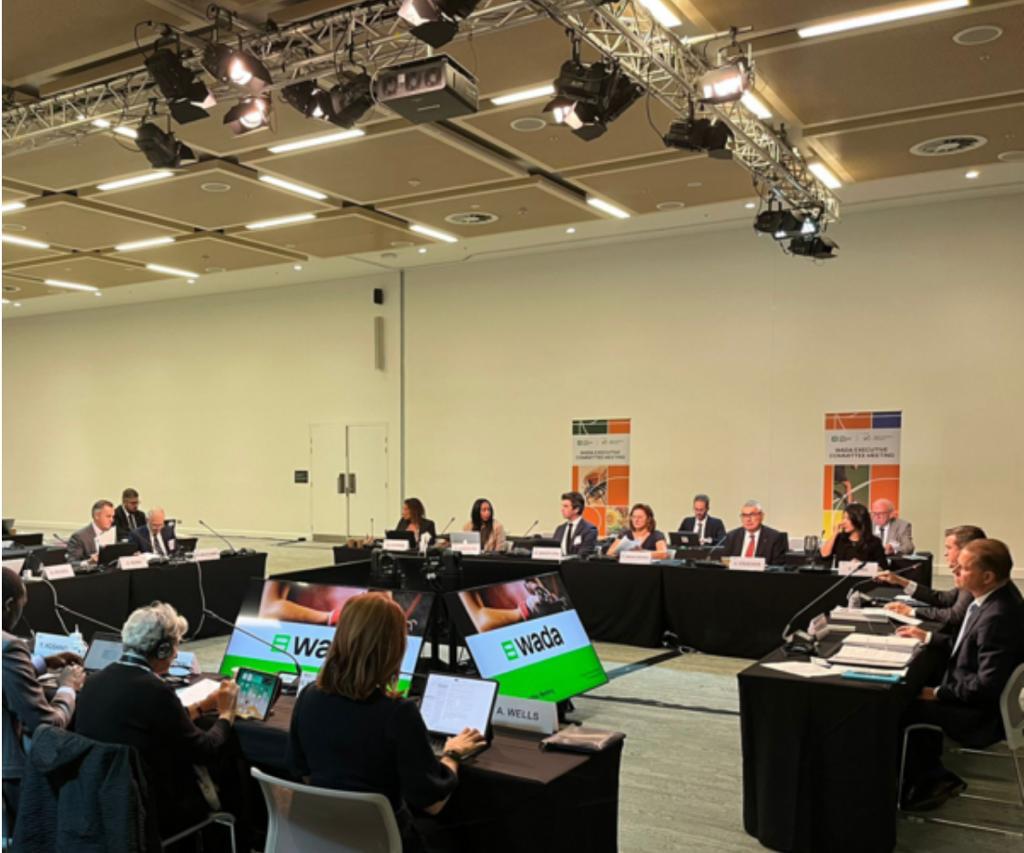
IADO on the 27th of September, 2022 submitted an official letter to the Deputy 4 responsible for Sports Achievement regarding an Advance Announcement to the Additional Prohibited Substances decided by WADA. On its letter, IADO mentioned that on September 23rd, 2022 the Executive Committee of WADA held its meeting in Sydney (it was organized after WADA Global Education Forum in Sydney where IADO also attended the WADA GEF). On that meeting, Executive Committee of WADA decided among others to approve the 2023 Prohibited List, which will be published before 1 October 2022 and come into effect on 1 January 2023 (https://www.wada-ama.org/en/news/wada-executive-committee-approves-2023-prohibited-list).
The first prohibited substance is called tramadol. According to the release of WADA, of particular note, the ExCo endorsed the recommendation by the List Expert Advisory Group (LiEAG) to prohibit the narcotic tramadol in competition, effective 1 January 2024. The delay in implementation is to provide an additional year for broad communication and education of athletes, their entourage and medical personnel so that there is a better understanding of the practical implementation of tramadol prohibition in competition. It will also give time to the scientific community to adjust the exact procedural details so that fairness can be ensured for athletes. In addition, it gives sports authorities time to develop educational tools for athletes, and for medical and support personnel to address the safe use of tramadol for clinical purposes within anti-doping.
The second one which is prohibited (and it has been actually prohibited until recently) is called cannabis. According to the release of WADA, as it relates to cannabis (delta9-tetrahydrocannabinol, THC), the ExCo endorsed the LiEAG recommendation that the status of THC on the List should remain unchanged. For the information, on September 2021, following requests from a small number of stakeholders, the ExCo agreed to initiate a review of the List status of cannabis, a substance which is prohibited in competition only. Since then, the LiEAG, which is composed of independent, experts in pharmacology, forensic toxicology, substances of abuse, analytical science, pharmacy, sports medicine, chemistry, endocrinology, internal medicine, regulatory affairs, peptides and growth factors, and hematology, intensifying to review of the status in sport of THC, the main psychoactive component of cannabis. This review should be based on the following criteria:
- It has the potential to enhance sport performance;
- It represents a health risk to the athlete; and
- It violates the spirit of sport (as defined by the Code).
Under the Code, a substance or method must meet at least two of these criteria to be considered for inclusion in the List.
All existing scientific and medical publications related to THC were reviewed by the LiEAG, as well as testimonials from athletes who were/are cannabis users, and published surveys from around the world, until the decision by Executive Committee that cannabis should be prohibited. As an information, THC is prohibited in competition only, and only when the urinary concentration exceeds a threshold of 150 ng/mL.
Due to the essence of the new information, from now IADO will provide a routine up date of information published by WADA, including any update of the prohibited substances, which is always published by WADA on its Executive Committe session of WADA. By such public announcement, it would be appreciated if the Ministry of Youth and Sports in cooperation with KONI, NOC of Indonesia and NPF of Indonesia could share the related-information to all National Sport Federation in Indonesia.
Jakarta, 27 September 2022
Chairman of IADO
Gatot S. Dewa Broto